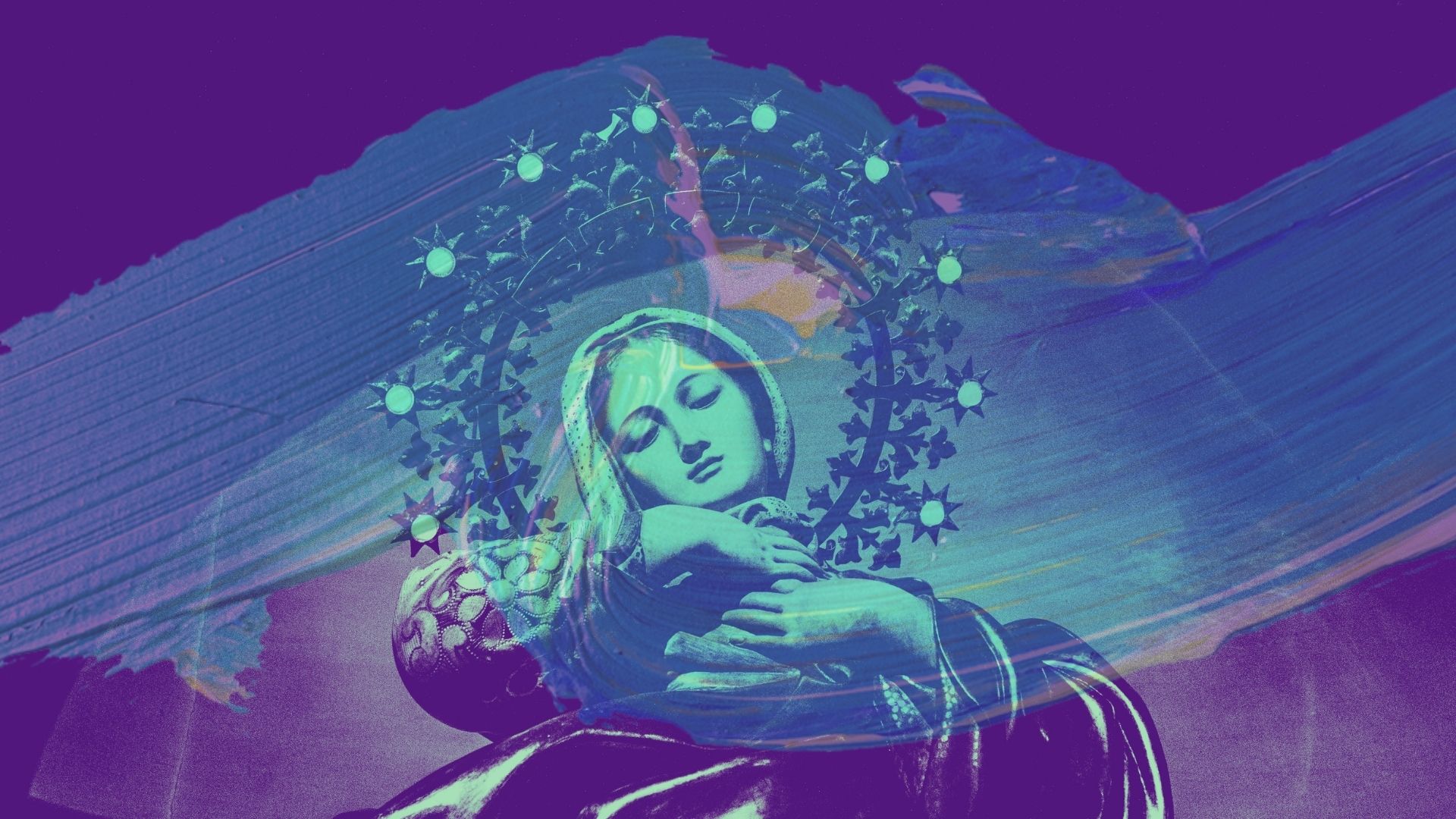It is the time of year when our collective consciousness turns to virginity: the season when the entire Western world is unduly interested in the un-penetrated hymen of one Israeli teenager. After all, without the Virgin Mary, there would be no Christmas. Her anatomy is pretty much the crux of the miracle we empty our wallets to celebrate, whether or not we even believe it to be true. The patriarchal tradition of majority Christian culture has promised us that Mary’s “purity” is at the center of our Christmas story.
But what if Mary’s virginity—the very part of the Nativity story we think we know so well—is actually a mystery we have yet to fully unravel?
For 2,000 years, Christians have held fast to the belief that Mary’s conception of Jesus was miraculous—sexless. I’m not here to object; after all, inexplicable phenomena are a part of spiritual experience (and if California Condors can reproduce without a male, why not Mary?). But it’s also undeniable that the Church has a dicey relationship with the carnality of human sexuality. The critique of Christianity’s hyper-fixation on sexual purity is more than fair, yet if we look back over the canon of mythology throughout human history, we see pretty quickly just how often the symbol of virginity was evoked to tell a deeper story.
In myths and fairy tales, a virgin is a young woman who suffers some hardship and must go inward to discover the depths of herself. Her virginity is imperative because it represents self-belonging. She is not the property of a husband—not physically, emotionally, or spiritually, either. Neither is she under the protection of a father.
While the well-documented archetypal male “hero’s journey” is one that requires radical sacrifice on behalf of others, the less acknowledged virgin’s journey is one of becoming self-determining: her heroism is not in rescuing others but in finding her own voice through an awakening.
We see this in mythological tales like that of Inanna, who must descend alone to the underworld (i.e. the unconscious) and strip herself of one protective power at each gate she comes upon in order to continue journeying deeper inward. We see it too in fairy tales like that of Little Red Riding Hood, who also journeys inward—as represented by the dark woods—and must face the breakdown of the construct of her world that she once thought to be infallible. In both stories, the virgin is tasked with an awakening deep within her psyche that invites her into a womanhood of self-belonging.
And so if we hold the virgin archetype up against Mary of Nazareth, we might be surprised by what we find. What if Mary’s virginity tells us not just about Jesus’ significance, but equally, about hers?
The virgin’s journey calls Mary to be self-determining. When approached by the angel Gabriel, she gives her own consent to a pregnancy that will stigmatize her for life, consulting no one else first, male nor female, peer nor elder. She would have been well aware that her fiat would make her a legally valid candidate for a public stoning; but with courage, she moved toward union with the Holy One when it was offered to her. Mary accepted a hero’s journey that would call her not outward to conquer the world, but inward to conquer the temptation to look to others for direction, validation, and permission.
READ: Jesus is Waiting at Our Border
While the entire Christian church holds to the belief of Mary’s miraculous conception of Jesus, Catholics take it one step further to the dogma of perpetual virginity: the belief that Mary remained a physical virgin all her life, even after marrying Joseph. (Non-Catholics are usually unaware of this teaching, and Protestants are likely scratching their heads with confusion since the New Testament mentions Jesus’ brothers and sisters. But the Catholic Church interprets this to mean “cousins.”) The teaching of Mary’s perpetual virginity is often scoffed at by those both outside and inside the Church to be archaic, sexist, and puritanical. These are not irrelevant objections and should be held under feminist critique.
But what if the doctrine of Mary’s perpetual virginity communicates something far deeper than the church fathers and popes understood? What if deep in our human consciousness we needed her as an archetype to remain metaphorically whole through the course of her life and motherhood, ultimately belonging only to herself and her own experiential knowledge of God? What if perpetual virginity is meant to prophesy to us about the union between the soul and the divine, free of any third-party intervention?
Of course, there is a wider story at hand. The fleshiness of the Silent Night promises us that whoever the good and gracious mystery that is God might be, they ardently desire to be in union with human beings.

